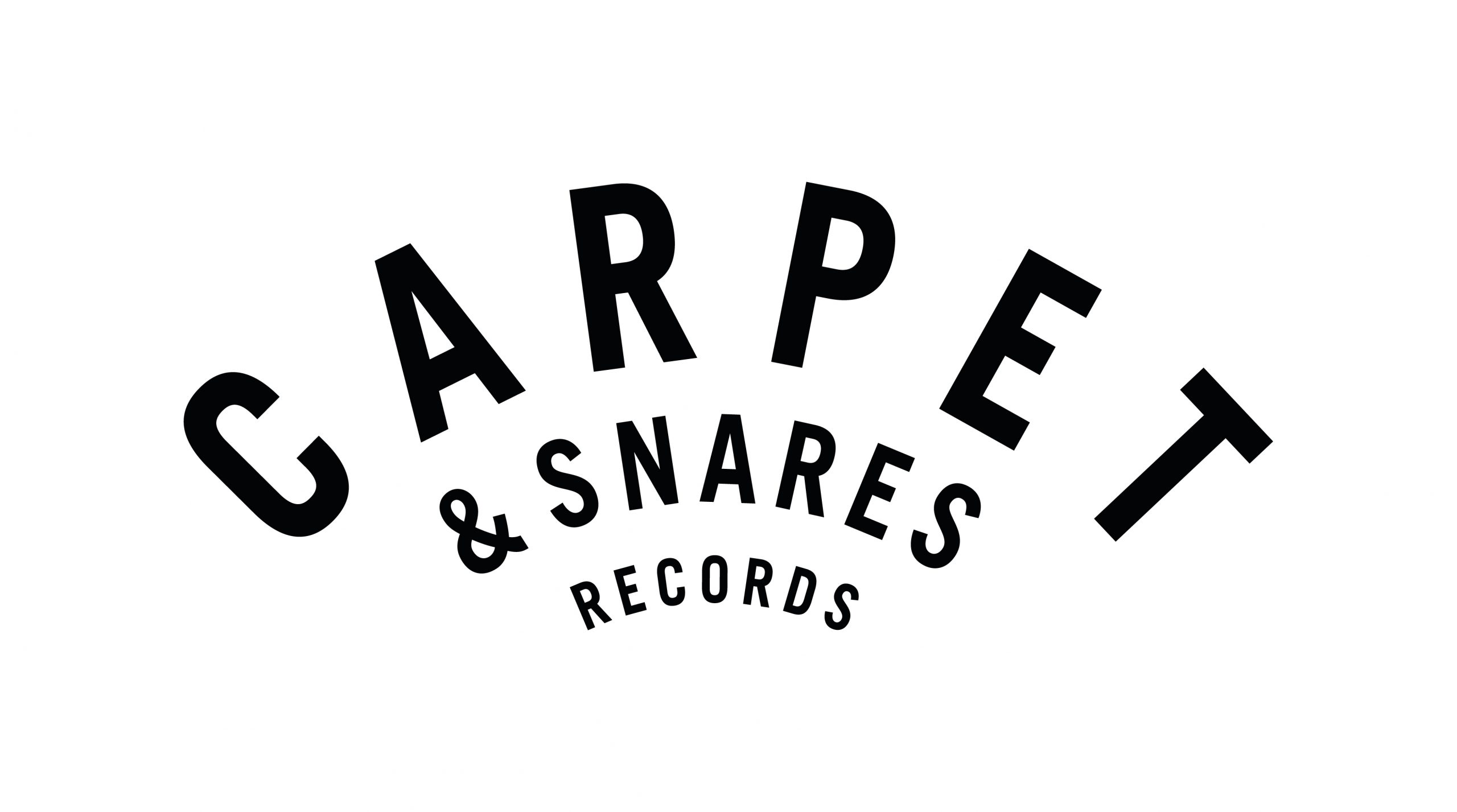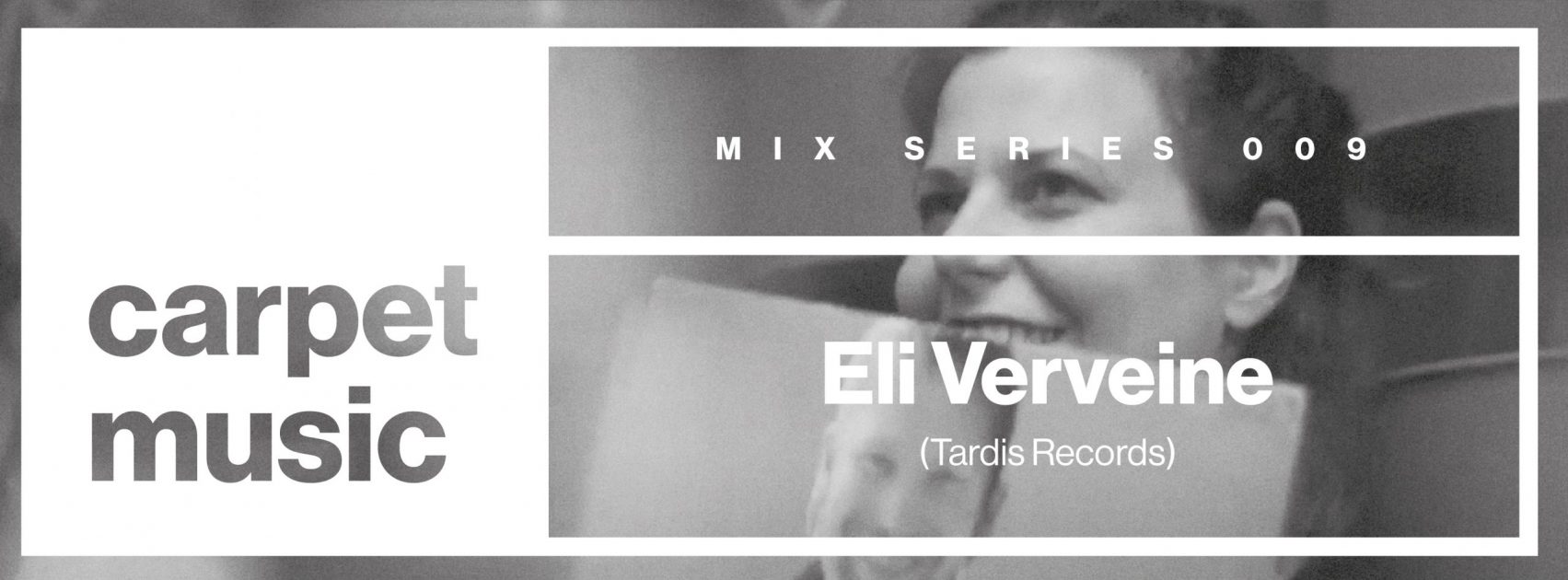Interview by Joe Delon, June 2nd 2022
Our next contributor, Eli Verveine, has been DJing for over two decades, first establishing herself at local Zurich venues like Dachkantine and later on international stages.
My first introduction to her was via her extended Comfort Noise radio session, recorded in 2007 and still a high watermark for a timeless late-90s/early-00s house-meets-techno sound that could be filed alongside Daniel Bell’s Button Down Mind and Blood Sugar-period Andrew Weatherall. The last time I had the pleasure of seeing her play was for the Saturday morning breakfast session in the Green room at Wilde Renate in Berlin, and the room’s warm sound and wooden floor was the perfect complement to her selection of deep but driving records.
Verveine’s DJing is patient, and it rewards that same patience in the listener. In this Q&A we dive into this concept and how it applies more generally to learning the art of DJing over time. Anecdotes from parties over the years – including an earlier epic set at Renate – help illustrate how Verveine has navigated the dilemmas of expressing creativity from the DJ booth.
The accompanying mix is a live recording of a recent gig in Gothenburg, and after a measured opening you can soon hear the crowd roar their appreciation during the breaks in Lil Louis’s ‘Blackout’ – patience, as ever, bringing its just rewards.
Something I notice when you play, is that your records tend to have a bit of toughness to them. Even when on the surface a record seems like a light house record, the kick is actually tough and the bass is driving.
I really like big kicks! I like these kind of tough grooves, but with some softer elements in them. When you’re first learning to DJ on proper systems it can catch you out. I remember being shocked when I had my first gig on a big system, because I had in mind how something would feel or work, and in practice it would be the opposite. A dubby, minimalistic groove that you’d think was a bit chilled at home would turn out to be super groovy and people would go crazy.
Of course over time you get a sense of how things will sound, but those first times I was really shocked. Once at Panoramabar, I thought I would build it up slowly, and I played something that was a bit more reduced, thinking it wouldn’t be that strong. But because the sound system was pumping and the room wasn’t filled, I felt suddenly that it was way too hard. That can happen when the room is empty during a warm-up.
And how do you deal with something like that, rather than seeing it as a crisis and losing your confidence?
This is something that makes DJing exciting for me, because there’s always a chance that I’ll fail somehow. I put myself in situations where sometimes I do fail, and I play the wrong thing, but it’s good. It’s also an experience, and maybe you will learn something from it.
It’s important not to freak out, but just observe what’s happening and then react to it. I would never change things too abruptly, I would try to make the change soft and invisible, so you wouldn’t notice immediately. That’s another thing I love about DJing: I never know exactly what’s going to happen. And since I have the USBs as a Plan B in my pocket, I’m not limited to the records in my bag and I know I can do anything I want. I can change my plan completely and react to whatever situation is in front of me.
Did you always maintain that spontaneity or did you prepare more in the past? You’ve said your attitude has changed a lot over the years.
Absolutely. I stopped preparing so rigidly and overthinking things. I know that what works best for me is not to prepare for too long or in too fixed a way. Of course I have an idea from the club of what I want to do, but I cannot spend too much time on the selection because I need that for my creativity. And I think I’ve let go of a lot of things that were holding me back. “Oh I can’t play that because I put it in that podcast.” It doesn’t matter. If I want to play it in that moment, then I’ll play it.
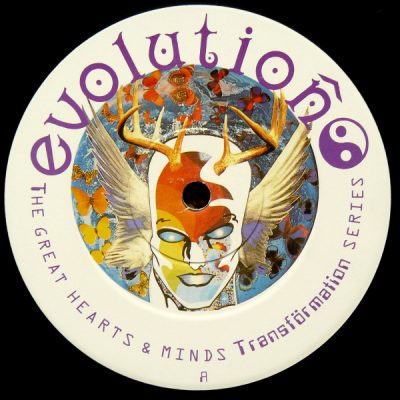
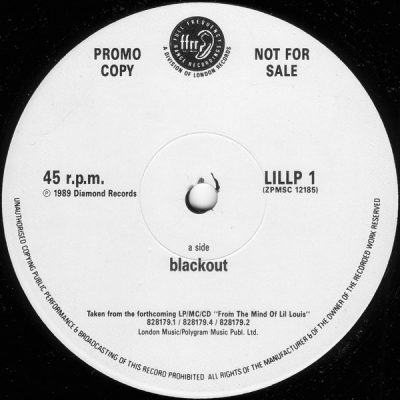
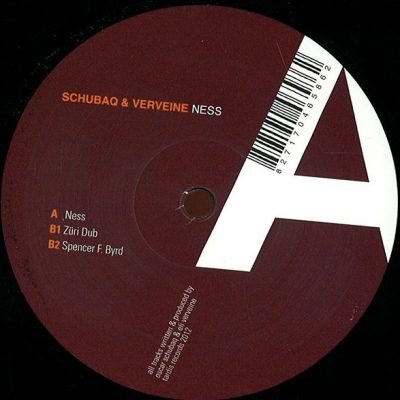
I also try not to let things influence me negatively. For example, if I arrive somewhere and the setup isn’t working properly, in the past I’d be really stressed out and you could see it in my face and feel it in my energy. I think I’ve changed that. My attitude now is that even if the venue isn’t professional, at least I am, and I will do the best I can to enjoy the situation. It’s been good for me too, I’m way more relaxed and people can feel that. The crowd doesn’t really know what you’re doing, so if they see you looking grumpy they won’t know why. If it’s a technical thing, they’ll just think that you’re a bad DJ. It radiates to the people. It’s subtle things that happen in the energy in the room and around yourself.
You transmit zen.
Absolutely. I also learnt not to push things on people. I’ve always believed that DJing is an artform, but in the end people are going out and paying entry, and their main goal is to have fun. They often don’t even know what the DJ is doing. I’m aware of that now and I think it’s also part of the art of DJing to catch people where they are with your sound. You don’t have to change everything but you have to react to the situation and try and bring it to where you want to be. You do this together, a give-and-take process. It’s an art to do that. A good DJ can always convince people with whatever music they are playing.
You need a lot of self-belief to do that.
That’s something that grows over the years. It took me many years to finally realise I actually knew what I was doing. And I felt good about what I had around me. I was very insecure for a long time and I would be pushed out of my comfort zone very quickly. It happens all the time that people say things that affect you, even without meaning to, and in the past that would ruin my whole night. I think I’m way more resilient now.
How do you grow that confidence? When I listen to your Comfort Noise set from 15 years ago the selection seems fully formed, but you’ve said you were insecure playing out back then.
Yes, I was very hard on myself especially at the beginning. When I started DJing I thought it was all about technical skill. I was practising – even training – at home, on and on. You have to train your brain, your hands, your body to listen and respond in a special way, but it’s not magic. Anyone with a feeling for rhythm can do it. Then the first time I played in front of people, I was dying. I was so scared. Then I realised: I need to start learning again. Even if you’re really good at home, it’s totally different out in the real world.
So I pushed myself very hard. I always wanted to be better and better. It was only later on that I learnt to be a bit more relaxed. Of course it’s not good if everything is super off, technically speaking. Playing a lot of warm-ups was the best school for learning for that. Starting from an empty floor and then people gradually join you until they start to dance. Usually it’s a bassline. I think bass is the thing that moves people’s hips!
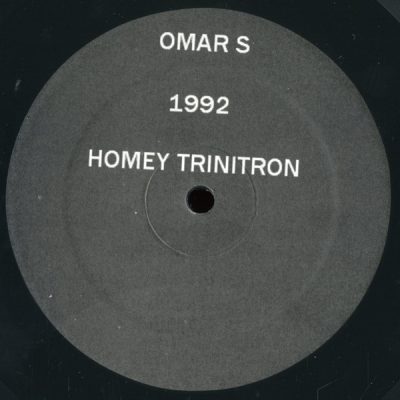
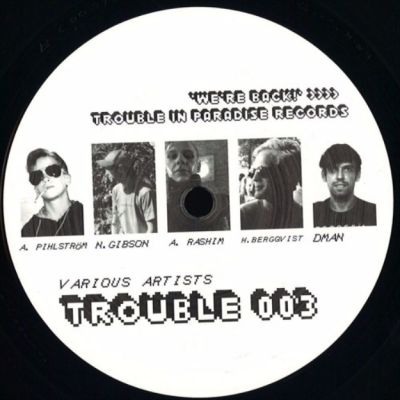
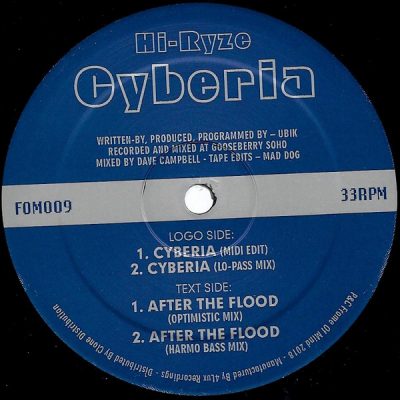
I said to you before that I really associate you with the idea of patience. Taking time with your mixing, both live and in podcasts. And if you’re patient as a listener then you’re rewarded with something that you wouldn’t get from a DJ just banging records into each other.
Sometimes you shouldn’t make people wait for too long. But at other times you can play with it. I remember once I was on after someone who was playing really uplifting 80s party music, but I really felt in that moment that I wanted to do something different. I wanted to go deep. It was in Berlin, at Stattbad in Wedding. I really liked the location. I felt like turning it around, so I started really differently from the previous DJ, and people just left the floor. But then I started to slowly build up a new dancefloor and it was really magical. I played for four hours so I had enough time, and I felt that the moment was right to turn it around. And it worked.
If you’ve got four hours then you know you have time to rebuild something different. But with two hours you might be more limited. You might have to keep what you’ve been handed.
I mostly play a minimum of three hours. And if everything is magical then I like it to go on longer! One time at Wilde Renate that happened, but it was completely unplanned. I don’t like it if a long set like that is really planned. But if it happens spontaneously… I was playing in the Black Room and I was supposed to play for three hours or so, and the guy had said I could stop in 30 minutes, but then suddenly he asked me to continue. He told me my floor had the best mood, so they decided to close the other floors, which was very unusual, and people came to my floor instead. So I carried on.
Then someone told me another DJ was going to come on, but I was still going, still going, and he didn’t appear. So I asked where he was, and they said: “No, no! We don’t want anyone else to play. We’ve been told you have to carry on playing.” Basically the promoter had already left, most of my friends had left, there was one friend who had come from Switzerland and she stayed with me. I decided after eight hours that I was done. It was an amazing night because it just happened. And every time I play there now, the people still remember that I’m the one who played so long on that floor!
It sounds like a really nice dream. One thing that would stress me out about an open-ended closing – as opposed to a defined ending point – is not knowing what is going to be the ‘last record’.
I love closing. I think it’s my favourite. And I know what you mean, I always put a lot of thought into what I’m going to play as a last track. But maybe because it was in Berlin, things are a bit different there, because stuff carries on for so long. There’s not such a defined end. I’m usually very reliable with timing, though sometimes with records there’s a bit of guesswork right at the end. I think it’s important to let people go home with a good feeling, so that last track is very important.
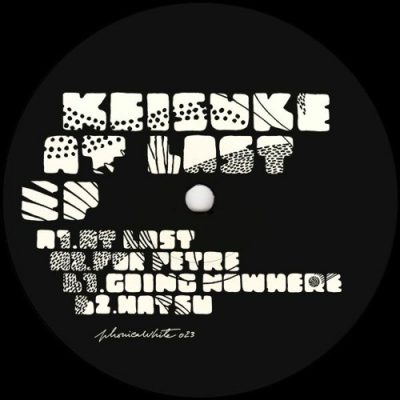
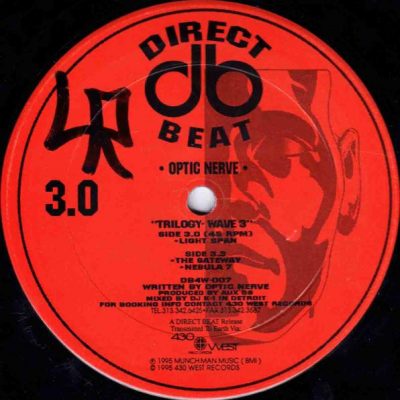

I remember hearing Rhadoo play once in London, and after three or four hours of really samey minimal stuff he finished with this incredibly dreamy ravey tune as if that was his ‘novelty closing track’. I wondered what was stopping him from playing that kind of tune earlier in his set.
Sometimes tracks lose or change their identity when you combine them with other things around them. They transmit something completely different. Artistically I find this very interesting. I play a lot with that – if I want to play something that’s really ‘wow’, I will give it some space. If someone says to me: “Oh, this part was really great”, I usually know it was great because I prepared the ground for it properly.
The music the DJ plays before you also influences your direction. People don’t often realise that. I think it’s good if you don’t have the same music all night. I like there to be variety or different grooves. There was this live act in Zurich who was always playing this amazing, reduced, minimalist, deep sound, usually in the morning hours. I remember there was nobody as deep or mellow as him. And people went nuts! I was impressed by that. I learnt that his music was giving people a different kind of satisfaction that they were missing in the banging music either side. Once you have the bang, that then allows you to go deeper. It was good to get the high energy music, but then also the deep music. Without that variety, we say in German: “My face starts to sleep”.
There was another party in London where I wanted to play deep music. I was closing. But I remember that everyone played deep before me, or it was kind of flat. Everything was a bit too deep and I felt that people were craving a bit of a bang. So I changed my plan, and I opened with Paul Johnson ‘Feel My M.F. Bass’.
I mean, that’s a bang.
I had to turn it around! People were waiting for it. You have to interact and see what feels right.
Sometimes I find that playing bangers can feel a bit easy too – you can do it and satisfy people, but you realise it’s only pushing one button among many.
I remember once playing in a small club, and afterwards thinking it was too groovy and strong. Because it’s a very small club. People really liked it, but I knew I could have done better. I didn’t say it out loud, but I knew inside. But that’s important because we’re all human, and that’s the learning process. After 20+ years I’m still learning. Of course I’m in a different place, but there are still moments where I’m learning. It’s good to reflect on it, and next time you can put a twist into the party music.
It also depends how you feel. How comfortable do you feel today? Do you want to take a risk? I think sometimes it’s fun to just throw in a record and see what happens. Sometimes it can be mindblowing and people go mad. Or people just stand there and look at you, like they don’t know what to do. Sometimes it’s good to just try it and see. And tracks don’t always sound the same either, they might work on one day but not on another day.
It’s also good to remember that not every gig is an opportunity for that to happen. Some gigs you’ll do a good job but it won’t surprise you.
And don’t take things personally. That’s one of the most important things I learnt. I was taking things very personally for so long. I remember the smoking ban coming in and it changing the dynamics in the clubs, because normally you had the same people in the same corners for the whole evening. And suddenly they were going out to smoke and coming back. Sometimes it was very challenging to keep up with the dancefloor. These things have nothing to do with you as the DJ. It’s a good reminder not to take things personally.
Could you tell us about the mix? It’s a recording from a recent party?
Yes, it was a warehouse party run by a young promoter in Gothenburg, he does amazing underground parties. He did the warm up and then the recording is pretty much from when I took over at peak time. There was already a certain level of energy in the room. Then the recording stops about an hour before the end of my set. We also played B2B at the end.
It’s so nice to hear the crowd through the needles!
The party had a great sound system and there were really cool people there. I’ve had many special moments in Gothenburg and it’s always a pleasure to come back!
Tracklist
Dr. Timothy Leary Meets The Grid – Origins Of Dance (Electronic Future Mix)
Kris Wadsworth – Mainline (Midland Re Edit)
Trevino – Backtracking (Schatrax Remix)
Schubaq & Verveine – Ness
Nina Kraviz – Hotter Than July
Omar S. – 1992
Mystic Bill – Late Night At The Music Box
Blake Baxter – Combustable (Four Track Remix)
D-Man – Hydro Rmx
Lil’ Louis & The World – Blackout
Floorplan – Music
G. Flame & Mr. G – Sounds Of The Underground
Christopher Ledger – Flow Interrupted
Arkajo – Earth
Hi-Ryze – Cyberia (Lo Pass Mix)
Andre Kronert- Trip
Optic Nerve – The Gateway
M.D.3. – The Pressure Cooker (Pressure Moan Mix)
Blake Baxter – Our Luv
Oshana – Back To The Source
Little Fritter & Zare – I Want It Back (Mr G’s Taking It Back Remix)
OCH – Whalesong
Captain Mustache ft. Foremost Poets – Floorwax
Detroit Grand Pubahs – Dr. Bootygrabber
Keisuke – For Petre
Point G – Balea
Smoke City – Mr. Gorgeous (And Miss Curvaceous) (Mood II Swing Dub)
Smallpeople – Gleich Fotos machen (unreleased)
Follow Eli Verveine on Soundcloud / Instagram
Check out Tardis Records at our Webshop
